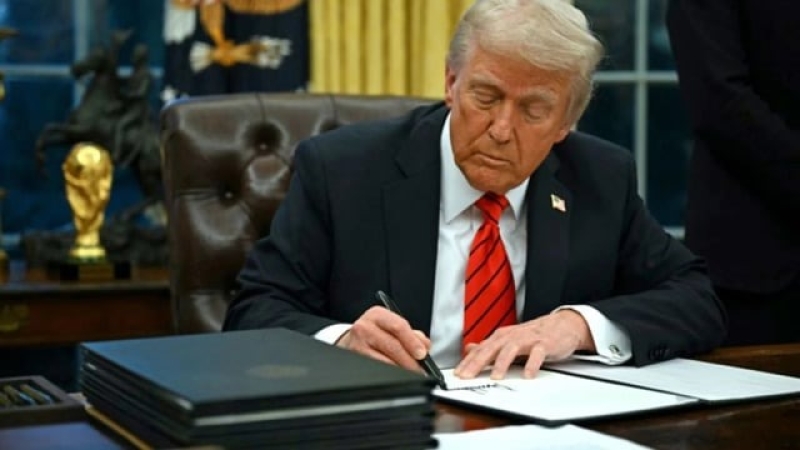- Iran vows to hit all ME economic hubs if US-Israeli attacks persist |
- Sammilito Islami Bank merger to continue: Governor |
- Biman Suspends Flights to Six Middle East Cities Over Tensions |
- Govt Announces 25pc Rail Fare Discount |
- Middle East War Puts Bangladesh Jobs at Risk |
Trump Cuts Tariffs on Key Food Imports to Curb Rising Costs

President Donald Trump on Friday signed an executive order lowering US tariffs on a range of agricultural imports, including beef, bananas, coffee and tomatoes, as his administration faces mounting pressure from voters struggling with the rising cost of living.
The order exempts these goods from the “reciprocal” tariffs introduced earlier this year to counter what Washington described as unfair trading practices. Officials said the decision followed a review of America’s capacity— or lack thereof — to produce certain food items domestically. Other existing tariffs, however, will remain in place.
The exemptions are retroactive and officially took effect on Thursday, according to the order released by the White House.
The move comes as affordability concerns dominated recent elections in New York City, New Jersey and Virginia, where Democrats secured sweeping victories after focusing heavily on household cost pressures.
Friday’s exemptions also include other widely consumed produce such as avocados, coconuts and pineapples — commodities the United States largely relies on imports to meet domestic demand. Coffee is one such staple; the US imports the vast majority of its supply, and prices rose by around 20 percent in both August and September, driven partly by climate shocks but also by tariff-related disruptions.
Bill Murray, president of the National Coffee Association, said the change would “ease cost-of-living pressures for the two-thirds of American adults who rely on coffee each day” and help stabilise supply chains for US companies.
Beef prices have risen this year as well, partly due to tighter cattle supplies. The White House noted that “certain qualifying agricultural products will no longer be subject to these tariffs, particularly foods not produced in the United States.”
The announcement follows trade agreements reached a day earlier with Argentina, Guatemala, Ecuador and El Salvador. Under those deals, Washington committed to lifting reciprocal tariffs on goods it cannot reasonably grow, mine or produce at scale.
Since returning to office in January, Trump has introduced sweeping tariffs on major trading partners, prompting warnings from economists that such measures could add to inflationary pressures and weigh on economic growth. While overall inflation has not surged sharply, policymakers acknowledge that tariffs have pushed up prices on specific goods.
Top economic advisor Kevin Hassett said this week that the administration recognises the financial strain facing American households. “That’s something we’re going to fix, and we’re going to fix it right away,” he added.

